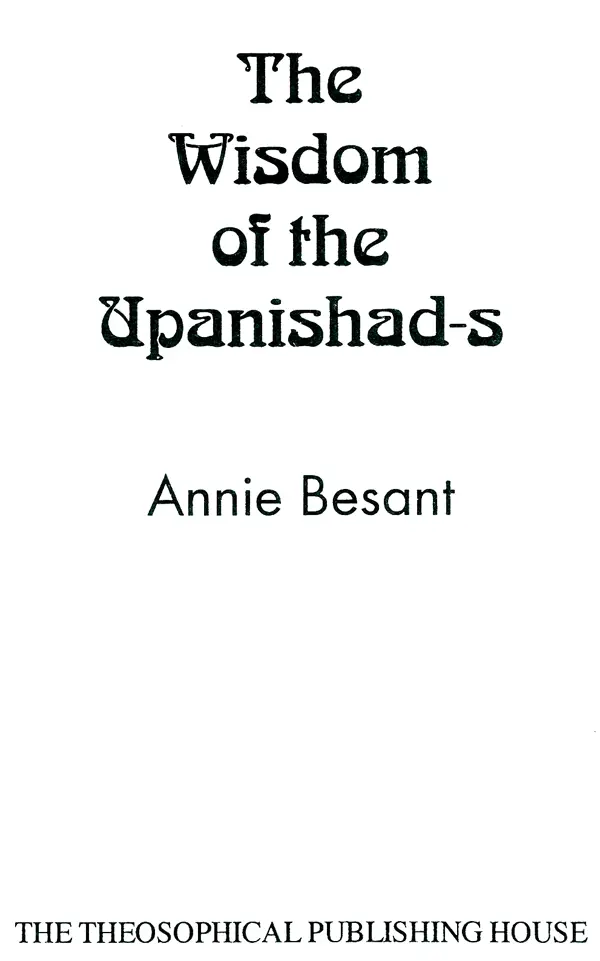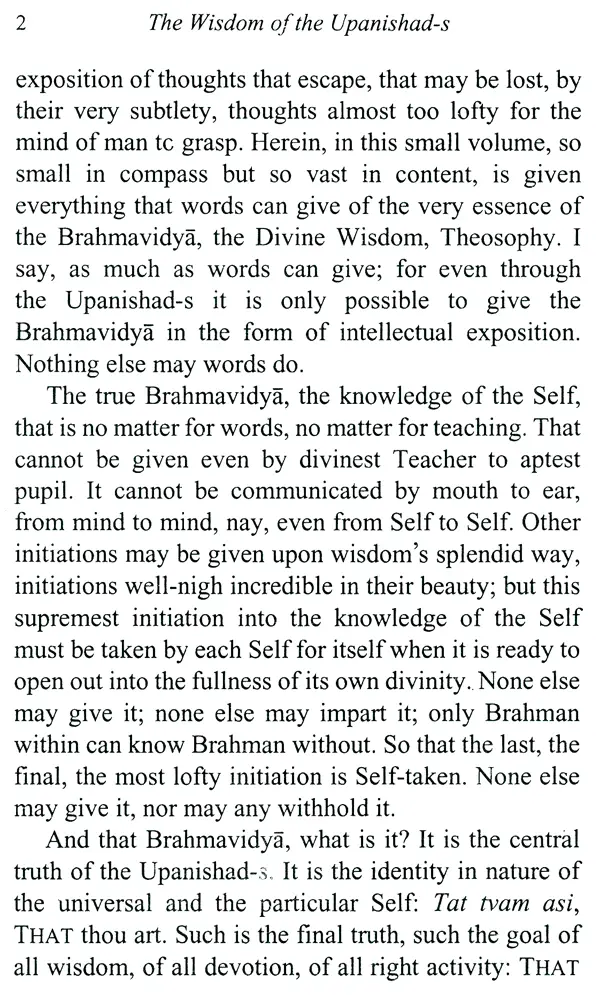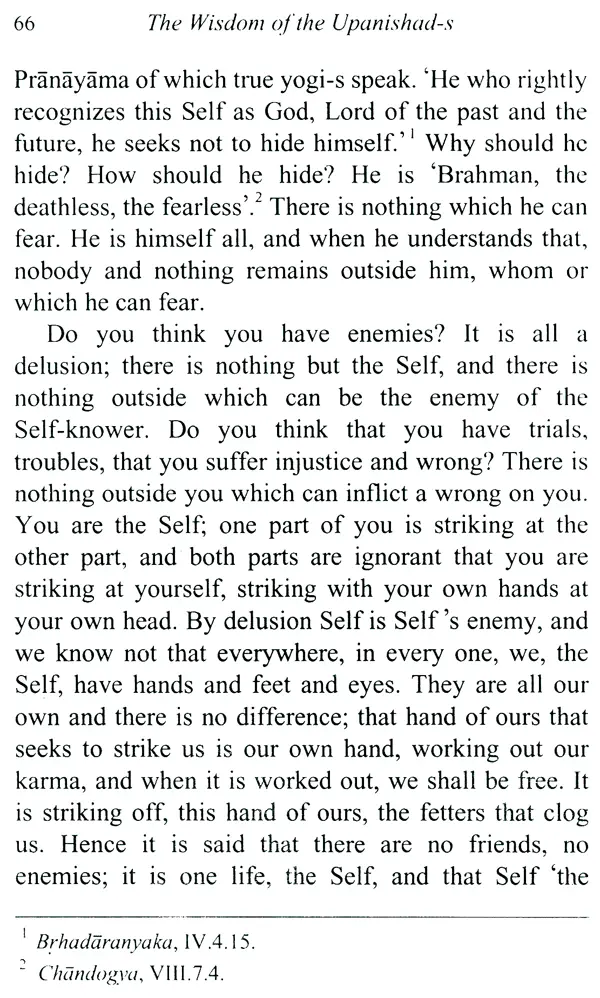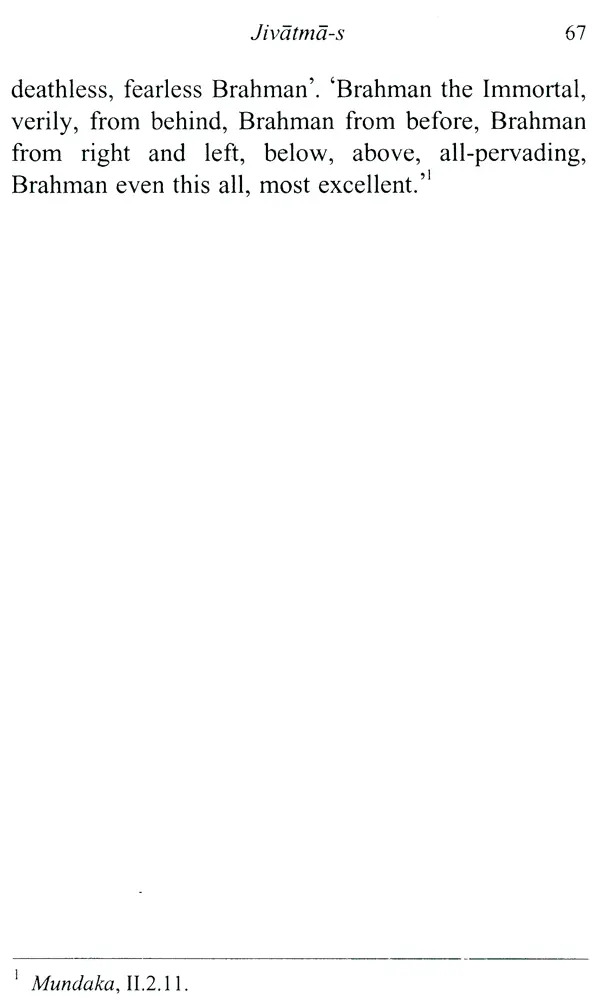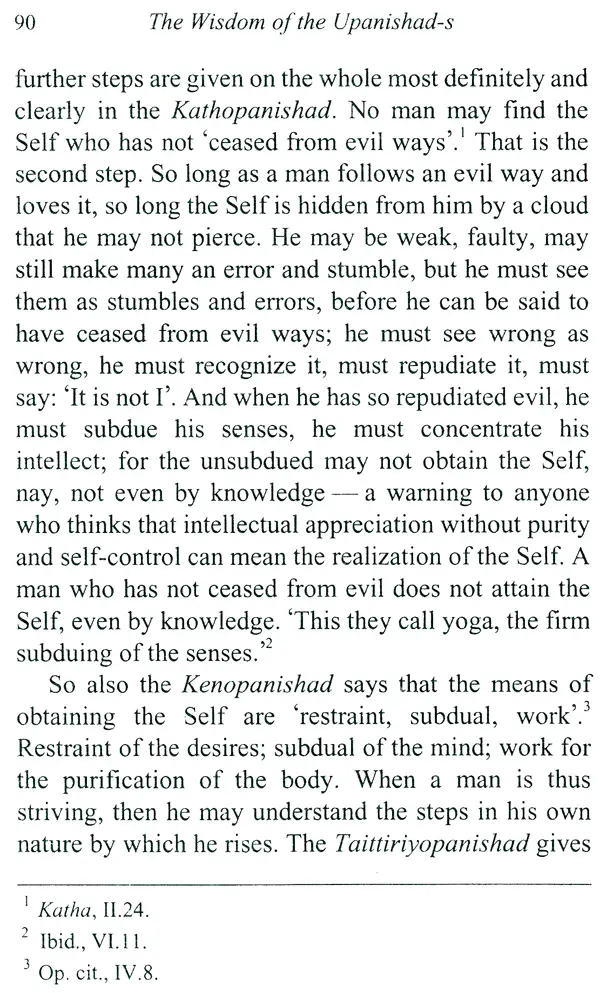
The Wisdom of the Upanishads
Book Specification
| Item Code: | UAH883 |
| Author: | Annie Besant |
| Publisher: | THE THEOSOPHICAL PUBLICATIONS |
| Language: | English |
| Edition: | 2012 |
| ISBN: | 9788170590293 |
| Pages: | 101 |
| Cover: | PAPERBACK |
| Other Details | 7.00 X 5.00 inch |
| Weight | 130 gm |
Book Description
The Upanishad-s are unique in the sacred literature of the world. They stand alone as beacon lights on a mountain peak, showing how high man may climb, how much the Light of Self may shine out through the vessel of clay, how truly God may speak through man. In this book, Annie Besant considers the fundamental Truth expressed in the Upanishad-s from a theosophical point of view.
Annie Besant (1847-1933), second President of the Theosophical Society (1907-1933) was described as a 'Diamond Soul' for she had many brilliant facets to her character. She was one of the outstanding orators of her time, a champion of human freedom, educationist, philanthropist and author. She has more than three hundred books and pamphlets to her credit, and guided thousands of men and women all over the world in their spiritual quest. In her earlier days in England, she did remarkable work as a Freethinker and Fabian socialist, and supported many noble causes, including women's suffrage. From 1893, she lived in India and worked indefatigably for the cultural and spiritual renaissance of the country. She organized the Home Rule movement and inspired Indians with a dynamic vision of India's future.
LITTLE need be said in sending out this booklet to the world. It is an attempt, very humble attempt, to draw a few drops from the ancient wells of Aryan wisdom, and to offer them to quench the thirst of weary souls, travelling through the desert, seeking for Truth. The Upanishad-s are unique in the sacred literature of the world. They stand alone as beacon-lights on a mountain-peak, showing how high man may climb, how much of the Light of the Self may shine out through the vessel of clay, how truly God may speak through man. To speak on them, to write on them, seems presumption for such a one as myself, and yet it may be that help will come to some of my brethren even in this way. The translations are my own, but will, I think, be found as accurate, though less wooden, than those known in the West. One word I have deliberately left untranslated-tapas. There is no one English word which expresses its meaning; the various translations given: austerity, penance, asceticism, devotion-all are in it, but it is more than all of these. It is from the root tap, 'burn'. Heat is in it, burning force, all-consuming. The fire of desire is in it, the fire which creates. The fire of thought, is in it, the fire which devours. It may be defined as 'a sustained strenuous physical activity, sternly controlled and directed by the will to a given end, and dominated by concentrated thought'. By tapas Brahma created worlds; by tapas Vishnu won his lofty rank; by tapas every rshi won his superhuman powers, and forced boons from the hands of even unwilling deva-s. So I have kept the word in its original form, and it will gradually become part of the theosophical vocabulary, as karma and dharma are already.
**Contents and Sample Pages**
